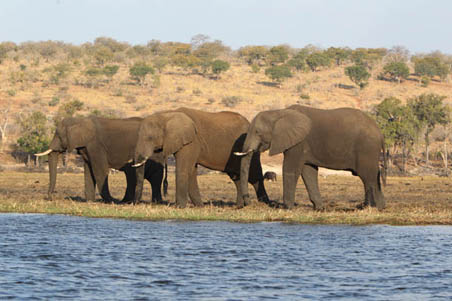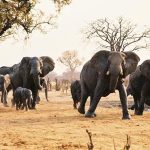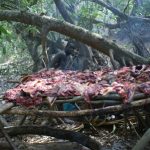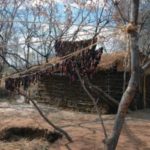A rural African community struggles to maintain its wildlife in the wake of a hunting ban.
What happens to rural African communities, and the wildlife that surrounds them, when safari hunting goes away? For many years, the hunting sector has supported wildlife initiatives in rural Africa with anti poaching efforts, schools, clinics, and village development programs. Without this support, communities often flounder and resort to poaching wildlife to supply their nutritional needs and sell for income.
One example of a community struggling with such a transition is the Xhauxhwatubi Development Trust (XDT), based in Phuduhudu Village in Botswana. For years, this community has held the lease for the Phuduhudu Concession, an area of more than 1,000 square kilometers, which has a small hunting quota. Through this, they were able to generate revenue from the sale of the hunting quota, providing funds for community and village development.
But in 2013, the Botswana government imposed a hunting moratorium on state land, which is still effective in 2017, and the main source of income to Phuduhudu Village was cut off. The community, along with many like it, continues to lobby the Botswana government to bring back a hunting quota for key species, including elephants. Human/elephant conflict in the region has reached an all-time high, with many rural communities calling on the government to reintroduce elephant hunting to provide compensation for crop damage and loss of human life, to provide protein for the village, and to generate funds for the community.
So far, this hasn’t happened, so the communities are working on ways to initiate their own commitment to managing their concession areas and implement small-scale conservation efforts. Funding for the efforts isn’t coming from the government, so the communities are looking to outside sources. If funds can be found relatively quickly, the community hopes to be able to continue its conservation efforts and maintain the wildlife diversity in the area. The most crucial part of this is the need to develop and maintain water sources for wildlife–something that the hunting operators used to do and that has been neglected since hunting was stopped.
The elephants in the Phuduhudu concession are part of the migratory system between key elephant habitats in the Chobe, the Okavango, and Zimbabwe. Development of water sources would not only help wildlife, it would help validate the communities’ future role in conservation and management in the coming years. Without these infrastructure developments, communities are more likely to lose their concessions to private tourism-sector developments, or, worse, resort to other land uses, such as mining and cattle farming, which will displace the wildlife entirely.
The villager of Phuduhudu are appealing to the international hunting community, especially the many clients who were fortunate enough to have hunted elephants in Botswana when it was still open. They’re asking for emergency funding to provide water and other management infrastructure such as road networks and anti poaching camps within the concession to maintain wildlife diversity, restore habitat, and ensure continued community ownership of concessions where safari hunting was, and still is, an appropriate conservation practice.
The donations needed range from $1,800, which buys a water tank and stand, to $2,000, which buys a solar panel and submersible pump. Well-known Botswana trophy expeditor Debbie Peake is working with the Xhauxhwatubi Development Trust to help facilitate this initiative. Hunters who would like to help should contact her at [email protected] for information.










